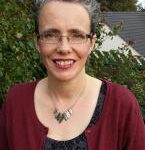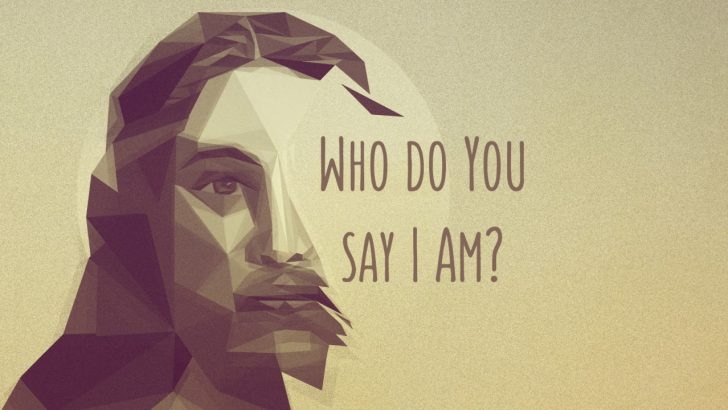Faced with coronavirus, the question is not so much why but how can we respond as people of Faith writes Bairbre Cahill
“Who do you say I am?” It is a question Jesus poses to the apostles in Mark 8:29 and which is being posed to us now too. I came across someone recently who nearly, but not quite, said that what is happening with the coronavirus (Covid19) is a consequence of how we have ignored God. The suggestion of a vengeful angry God behind such a statement appals me. What sort of image of God would we have to be working out of to suggest that God would choose to kill thousands around the world in order to gain our attention?
I do not believe that what is happening is God’s will, but then I don’t believe in a God who deliberately inflicts suffering. I understand it when someone says: “How could God give my mother/husband/child cancer?” I understand the fear and frustration, the helplessness and the anger – I’ve been there myself – but I do not believe that God has chosen to inflict that suffering.
God, who I encounter through Jesus, in the Gospels and in my own lived experience is God of tenderness and love, God of mercy and goodness.
Evil
So from whence does evil come if not from God? I do believe that in a world of infinite possibilities there is always the potential for chaos. So whether that is a cell going rogue and creating a cancerous tumour or a virus developing in a market in China because of the way animals are kept, there is always that potential to create chaos.
So I certainly wouldn’t be saying God is trying to teach us something with the coronavirus and the unprecedented shutting down of society. However, I would definitely say that there is much for us to learn in this whole experience. For me the question is not “why has God done this?” but “how can I respond as a person of Faith?”
****
As in so many of these situations, I have been struck by the goodness and humanity of so many. There have been offers to do shopping for neighbours. Restaurants and cafés have provided food for those living alone. Supermarkets are arranging times when just the elderly can shop so that they can do so in a safer and less crowded environment.
Even when we go out for a walk to a beach or out in the wilds of Donegal, I am struck by how people will keep their distance but still say hello, smile and acknowledge each other. Friends are sending on prayers, funny stories, memes – injecting that little bit of laughter and comfort into these stressful days.
Inevitably there are those who have struggled to step out of the ‘me, myself and I’ approach to life. They have continued to party, seemingly oblivious of the damage they are doing to the most vulnerable within their own circle of family and friends. We do need to ask how it is that people can be so disconnected from a sense of responsibility for others.
Realisation
Children who now find themselves cut off from their school friends and after-school activities are coping with the new reality on the basis that it will help to keep their grandparents and others safe. If children can grasp that why do many adults fail to – or choose not to?
In all of this we face the challenging realisation that we are one body. Individualism and self-obsessions have created weakness not strength. Watching Masses online from our cathedral here in Donegal I have been deeply aware that I am united in prayer with others and I derive enormous comfort from that.
Perhaps one of the most powerful lessons we are re-learning is how connected we all are. We are being reminded in a very stark way that we are all responsible for each other and that we hold the well-being of others in the palm of our hands. President Michael D Higgins called us, on St Patrick’s Day, to a renewal of solidarity – and never has it been more needed.
In this context it is vital that the big pharmaceutical companies work in solidarity. This is not the time for business interests to come to the fore. There needs to be a sharing of knowledge and expertise, a willingness to work together for the common good. That is a radical and revolutionary concept for business, but it is what will speed us towards an anti-viral drug or vaccination which then must be made available and accessible for all across the globe. We are one body and the whole body must be cared for.
Individualism will not win the day but individual responsibility is vital.
****
What does this situation ask of each of us? That we would take seriously – potentially for weeks or months – the medical advice about hand hygiene and social distancing, that we would accept the restrictions this places on our lives, that we would not take unnecessary risks. Beyond that, how do we still reach out and show our care and concern? Who needs a phone-call, a text message, maybe even the novelty of a letter just to say: “Hi, I’m sending you my love”?
Is there anyone around us who needs shopping picked up and left on their front doorstep? Are there charities which need extra support from us to keep going when their usual funding streams have been utterly disrupted by this lockdown?
****
People are losing jobs. People in jobs may find themselves on reduced income. How will we show solidarity and empathy for people around us who are struggling now and may take many months to recover.
When this is over – and that day will come – how will we put our money back into the economy and support the many small and medium sized businesses that have taken the hardest hit?
When this is over…will we allow God to draw us into the quiet so that we can rest with him in prayer or will we try to keep manically busy and distracted?”
Who will we be? Fundamentally that is the question we face. When we are struggling with more face to face family time than we have had in years, if we are struggling to home-school children, if our anxieties are cross-pollinating – who will we be? Will we do our best to be people of patience and gentleness, people of empathy and love? Will we drip-feed ourselves one anxiety provoking news story after the next on social media or will we take a step back? Will we allow God to draw us into the quiet so that we can rest with him in prayer or will we try to keep manically busy and distracted?
Jesus asks his apostles and by extension us: “Who do you say I am?” What would you say in response? Is Jesus the image of the unseen God who wreaks havoc and destruction? Or is he one who images God for us as mercy and tenderness, utter, absolute self-giving love?
As people of Faith we are called upon now to be the ongoing image of God in the world, to be the body of Christ. In the face of this hugely challenging scenario let us make real in our care for each other the mercy and tenderness, the loving goodness of our God.


 Bairbre Cahill
Bairbre Cahill
